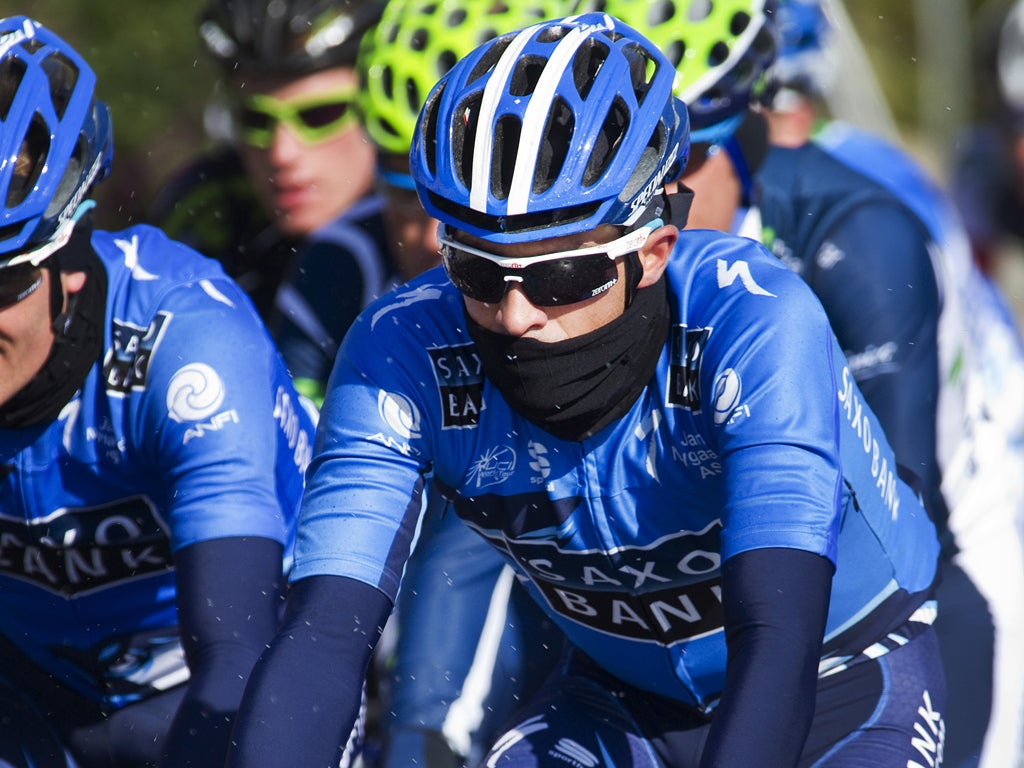
Alberto Contador was today banned for two years by the Court of Arbitration for Sport and stripped of his 2010 Tour de France victory following his positive test for clenbuterol.
It was initially announced the Spaniard had failed a doping Test in September 2010, shortly after he had won his third Tour - he was also victorious in the sport's biggest race in 2007 and 2009.
The 29-year-old always maintained his innocence, claiming he failed the test after eating contaminated meat, and rejected an offer from the Spanish Cycling Federation (RFEC) to serve a 12-month ban.
In February 2011, the RFEC then decided to withdraw any sanction against Contador, a decision which was subsequently appealed at the Court of Arbitration for Sport by the International Cycling Union (UCI) and World Anti-Doping Agency (WADA).
CAS today partially upheld that appeal, ruling Contador must serve a two-year period of ineligibility starting retroactively on January 25, 2011, minus the period of the provisional suspension served in 2010-2011 (five months and 19 days).
Contador's suspension should therefore come to an end on August 5, 2012.
All results obtained during that time will be wiped from the record books, meaning that in addition to Contador losing the 2010 Tour crown, his achievement in winning the 2011 Giro d'Italia will no longer be recognised.
The 2010 Tour title will now go to Andy Schleck of Luxembourg with Russian Denis Menchov finishing second and Spaniard Samuel Sanchez up to third.
Michele Scarponi is the new winner of the 2011 Giro.
The CAS statement read: "Alberto Contador alleged that the presence of clenbuterol in his system originated from eating contaminated meat. The UCI and WADA submitted that it was more likely that the adverse analytical finding of the athlete was caused by a blood transfusion or by the ingestion of a contaminated food supplement than by the consumption of contaminated meat.
"The Panel found that there were no established facts that would elevate the possibility of meat contamination to an event that could have occurred on a balance of probabilities. Unlike certain other countries, notably outside Europe, Spain is not known to have a contamination problem with clenbuterol in meat.
"Furthermore, no other cases of athletes having tested positive to clenbuterol allegedly in connection with the consumption of Spanish meat are known.
"The Panel concluded that both the meat contamination scenario and the blood transfusion scenario were, in theory, possible explanations for the adverse analytical findings but were however equally unlikely.
"In the Panel's opinion, on the basis of the evidence adduced, the presence of clenbuterol was more likely caused by the ingestion of a contaminated food supplement."
Contador will now miss the 2012 Tour and the London Olympics.
A statement from the UCI read: "The UCI acknowledges the decision of the Court of Arbitration for Sport (CAS) to impose a suspension of two years on the rider Alberto Contador following the UCI's appeal, brought in conjunction with the World Anti-Doping Agency (WADA), in the case concerning the Spanish cyclist.
"In rejecting the defence argument, in particular that the presence of clenbuterol in Alberto Contador's urine sample came from the consumption of contaminated meat, today's ruling confirms the UCI's position.
"However, the UCI has not derived a sense of satisfaction from the CAS ruling, but rather welcomes the news as the end of a long-running affair that has been extremely painful for cycling."
UCI president Pat McQuaid added: "This is a sad day for our sport. Some may think of it as a victory, but that is not at all the case.
"There are no winners when it comes to the issue of doping: every case, irrespective of its characteristics, is always a case too many."
PA
Subscribe to Independent Premium to bookmark this article
Want to bookmark your favourite articles and stories to read or reference later? Start your Independent Premium subscription today.

Join our commenting forum
Join thought-provoking conversations, follow other Independent readers and see their replies